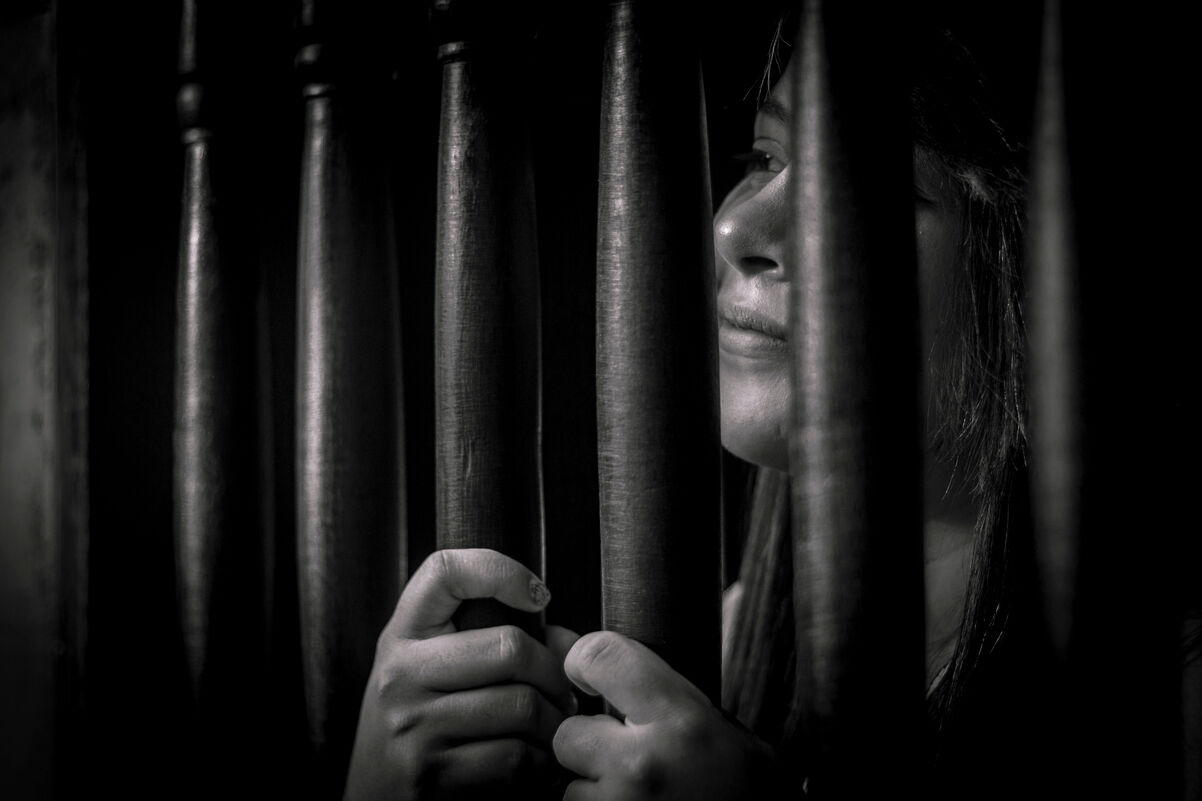The Trump administration may be preparing to roll back protections on the treatment and housing of trans prisoners in federal facilities.
Two days before Donald Trump was sworn in as the 45th President of the United States, the Bureau of Prisons (BOP) quietly unveiled new policies mandating that “serious consideration” be given to the “health and safety” of transgender prisoners when determining housing placement and other issues that arise within state custody. The Jan. 18 guidance claims such determinations should be made on a “case-by-case basis.”
The BOP’s updated policy manual also states that trans prisoners should be “given the opportunity to shower separate from other inmates” to further ensure security.
But that document may be revoked as the result of a Fort Worth, Texas case in which four female inmates claim unlawful “gender discrimination” as a result of being housed in the same complex as transgender women. Plaintiffs Jeanette Driever, Rhonda Fleming, Charlsa Little, and Brenda Rhames are arguing a violation of the 8th Amendment to the U.S. Constitution under “cruel and unusual punishment.”
The women claimed in court filings that trans prisoners (referred to as “men”) sexually harass female inmates and expose their genitals for “their own sexual gratification.” Fleming, a Trump voter who was sentenced to 30 years for health care fraud, alleges her “bodily rights are being violated” by these actions.
“I am being humiliated and degraded every day so that men that identify as women can be comfortable,” the lead plaintiff claims, despite the fact that the women are in separate buildings from trans inmates and had little interaction with them.
The plaintiffs are being represented in court by the Alliance Defending Freedom (ADF), the Christian law firm representing baker Jack Phillips in Masterpiece Cakeshop v. Colorado Civil Rights Commission. ADF lawyers claimed his constitutional rights to freedom of expression are violated by baking cakes for same-sex weddings in oral arguments before the Supreme Court in December.
The firm has also co-authored numerous anti-trans bathroom bills across the United States.
The Department of Justice (DOJ), which is defending the government’s position in the case, is currently in negotiations with the plaintiffs to settle the dispute out of court. Terms of the resolution “could be released in a matter of weeks,” reports the Dallas Morning News.
Such a settlement is likely to result in at least a partial rescindment of the Obama-era policies on trans detention. Attorneys acting on behalf of Attorney General Jeff Sessions “did not defend” the 2017 policy manual in court proceedings, as BuzzFeed reported last August. The DOJ claimed the defendants weren’t able to demonstrate a tangible threat of bodily harm but failed to address whether they agreed with the guidelines being questioned.
BuzzFeed reporter Dominic Holden claimed the workaround was an indication the administration was already reexamining the manualjust months after taking office.
A “huge mistake”
LGBTQ advocates tell INTO that any action to repeal those policies would threaten the lives the very population that the guidelines were designed to protect. Danni Askini, executive director of Seattle’s Gender Justice League, says it would be a “huge mistake.”
“Removing those protections would likely mean that trans folks would experience an increase in violence,” Askini claims over the phone.
“I think the primary concern is that people would be physically or sexually assaulted if inappropriately housed,” she continues. “That type of violence is not what people are sentenced to when they’re sentenced to prison. They’re sentenced to serve timenot to be victims of crimes themselves.”
Although the lawsuit alleges cisgender women are endangered by trans people, research shows the opposite is true: Transgender inmates are significantly more likely than any other group to be victimized in state or federal facilities. A 2011-2012 report from the Bureau of Justice Statistics found that a third of trans individuals had been subjected to sexual violence over that time span, a rate eight times higher than members of the general prison population.
Findings from the University of California-Irvine were even more grave: A 2009 study reported that 60 percent of trans inmates in state prisons had been sexually harassed or assaulted at some point during their detention.
Numerous lawsuits in recent years have further testified to the extraordinary abuse trans people face in U.S. correctional facilities.
A transgender inmate in Illinois sued to be transferred to a women’s prison after experiencing rampant sexual assault from other prisoners and even staff members. She claims “guards made her and another transgender inmate perform sex acts on each other as the guards hurled slurs and laughed,” as the Associated Press reported in January. Her suit alleges that staffers threatened “retaliation” if she complained about the mistreatment.
Nell Gaither, founder of the Trans Pride Initiative, says that these abuses remain rampant in the prison system.
The Dallas-based advocacy group has noted a “pretty big increase” in complaints about invasive searches and abusive treatment over the past 12 months, even despite the updated policy manual from the BOP. For instance, one inmate wrote to Trans Pride Initiative claiming a guard berated her with anti-LGBTQ slurs.
“All you faggots need to be lined up and shot,” the guard allegedly said.
The reality is, Gaither claims, that the guidelines “hadn’t had the chance to be implemented to any great degree” under the nascent Trump administration.
But nixing the policy altogether would only make the problem worse. Although the regulations were specific to federal prisonswhich house just eight percent of the overall prison populationactivists could point to those in order to lobby for reform at state facilities and local lockups.
“Not only does it take away from persons in the system who want to use that policy as justification for changing their own internal policy, it also takes a tool away from advocates,” Gaither tells INTO over the phone. “If that’s rescinded, we no longer have that to refer to in order to say, ‘This is what’s being done at the federal level. This is a precedent. This is what you need to do at the state level.’”
“We were really hopeful that would trickle down to local units where many times more people are held,” she continues.
The PREA safety net
An absence of policy from the BOP on trans detention shouldn’t suggest that transgender inmates are without protection going forward.
The affirming regulations passed last year largely clarified existing policy resulting from the passage of the Prison Rape Elimination Act (PREA), a bipartisan act of Congress intended to reduce the incidence of sexual assault in U.S. facilities. The legislation was passed unanimously in 2003 under the George W. Bush administration but wouldn’t be fully enacted until 2012, following nearly a decade of research from commissions within the BOP.
“The final regulations that came out in May 2012 have a series of standards that are directly applicable to federal facilities and include standards by which trans people have to be treated,” says Chase Strangio, a staff attorney with the American Civil Liberties Union.
But Gaither claims the 2017 policy updates went further in a few key ways, including “defining specifics in medical and mental health treatment and affirming use of names and pronouns.”
Even if the Trump administration would like to unilaterally undo regulations which allow trans people to be housed in facilities consistent with their gender identity, Strangio says the White House simply doesn’t have the power. Repealing PREA would require Congressional action, which would be unlikely given the bill’s overwhelming support on both sides of the aisleas well as the time and effort it took to enact.
“[The settlement] would do nothing to alter the force of the PREA regulations and it would certainly do nothing to change constitutional standards,” Strangio claims.
“The president himself can’t change regulations,” he continues. “The agencies have to go through certain procedures to do that by law. Trump can, as we’ve seen, issue executive orders, and he can direct agencies to change their policies and practices in certain ways when those ways aren’t done by regulations.”
Strangio points to the White House’s decision to rollback protections for transgender students under Title IX of the Education Amendments of 1972. In February 2017, the Departments of Justice and Education announced they would be rescinding year-old guidelines from the previous administration allowing trans students to use facilities consistent with their gender identity in K-12 schools.
Trump’s DOJ and DOE claimed the government had failed to provide an “extensive legal analysis” illustrating how the federal best practices issued to schools were consistent with Title IX.
But that decision “didn’t change Title IX,” Strangio says.
“It didn’t change regulations,” he claims. “It was about the department’s interpretation of Title IX.”
“In the context of the Bureau of Prisons, there are all sorts of directives and policies governing the administration of prisons,” Strangio continues. “They could change [the 2017 policy], and that would be unfortunate because the BOP had issued some greatly improved policies in respect to trans prisoners in recent years. Regardless, the agencies are bound by both federal law and the constitution.”
What the future holds
The presence of PREA as a safety net for the trans prison population doesn’t mean advocates aren’t concerned about the outcome of the Texas case.
Gaither says the regulationsfor as much good as they do overallare relatively weak when it comes to the subject of transgender detainees. She claims, for instance, that the term “gender” isn’t actually defined in PREA.
“That lets facilities define it as they wish as long as they don’t specifically define it by genitals,” she claims. “In this way, trans persons are often exempted from coverage that the general public thinks PREA covers. The BOP policy does add some specifics for trans persons, but they, too, are not great.”
Even though defining gender by genitalia is “specifically prohibited” under PREA, prisons often violate that guideline, Gaither says.
The reality is that even with those pre-existing policies still in place, transgender people will continue to face extreme roadblocks in a system that has long struggled to make space for their existence.
A very rough estimate suggests that around 4,000 trans inmates are currently housed in California lockup facilities, based on federal statistics on the disproportionate rate of trans detention. But state corrections department spokesperson Terry Thornton claimed in 2016 that just three transgender women had ever been placed in a California women’s facilityall of whom had transitioned prior to their sentencing.
With an administration determined to rollback rights for LGBTQ people in every conceivable fashion, Strangio is “nervous” about what this case portends for the future.
“It’s devastating to see lawsuits of this nature that attack trans people for existing in a space of any kindparticularly in single-sex spaces,” he says. “In this case, it seems like you have both a defendant and plaintiff who share the same view. How they come up with an agreement that’s not collusive, I have no idea.”
“I anticipate we’ll see some negative changes,” Strangio adds.
Help make sure LGBTQ+ stories are being told...
We can't rely on mainstream media to tell our stories. That's why we don't lock our articles behind a paywall. Will you support our mission with a contribution today?
Cancel anytime · Proudly LGBTQ+ owned and operated
Read More in Culture
The Latest on INTO
Subscribe to get a twice-weekly dose of queer news, updates, and insights from the INTO team.
in Your Inbox















